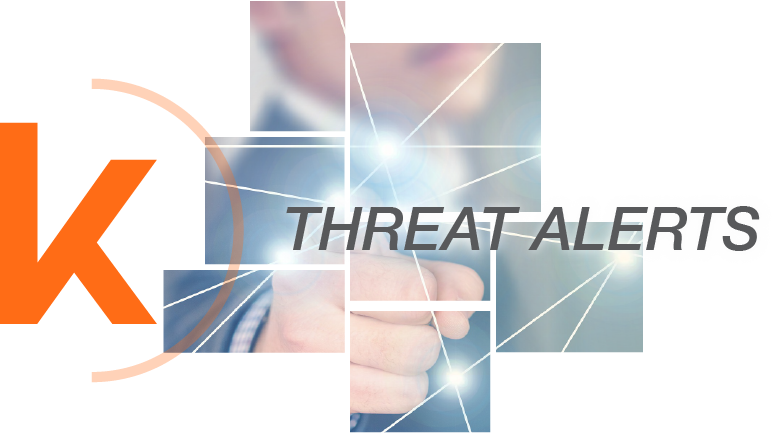Last week, a ransomware attack impacts COVID-19 care, what happens when a company ignores basic security protocols, and mitigating cybersecurity risks during the Coronavirus pandemic.
United States – Whisper
Exploit: Unsecured database.
Whisper: Privacy-focused messaging app.
Risk to Small Business: 2.111 = Severe:
Developers overlooked basic security protocols when they left a database containing customer information unprotected by even a password, and hackers pounced. As a result, 900 million files dating back to the company’s launch in 2012 were made available online. Although the company was quick to secure the database, its reactive efforts will do little to assuage the doubts and concerns of its privacy-minded customer base.
Individual Risk: 2.571 = Moderate:
Users’ names were not stored in the exposed database, but nicknames, ages, ethnicities, genders, hometowns, group memberships, and location data were all available. Some personal information was highly sensitive and could be used to execute spear phishing campaigns or targeted ransomware attacks.
Customers Impacted: Unknown.
How it Could Affect Your Customers’ Business: Ransomware attacks not only negatively impact productivity and manufacturing, they also negatively impact growth. Companies like Visser Precision have many high-profile and mission-critical clients. Cybersecurity incidents can put those organizations at risk, making them less likely to do business with companies that have data security issues.
United States – Champaign-Urbana Public Health District
Exploit: Ransomware.
Champaign-Urbana Public Health District: Healthcare service provider.
Risk to Small Business: 2.111 = Severe:
A ransomware attack disabled the healthcare provider’s website as concerns over Coronavirus (COVID-19) are reaching a fever pitch. While the incident spared the provider’s email accounts, health records, and patient records, it limited the agency’s ability to communicate with patients. The Champaign-Urbana Public Health District has begun using its social media accounts to communicate with the public, and they’ve launched a backup website to replace the disabled page. This is an expensive and potentially harmful incident at a time when quickly communicating information can be a matter of life and death.
Individual Risk: At this time, no personal information was compromised in the breach.
Customers Impacted: Unknown.
How it Could Affect Your Customers’ Business: The particular malware strain that infected the Champaign-Urbana Health District targets enterprises running Windows 10. It’s a reminder that ransomware is on the rise and companies can take simple steps to ensure that malware doesn’t enter their system through outdated software, phishing attacks, or other vulnerabilities.
United Kingdom – Anteus Tecnologia
Exploit: Exposed database.
Anteus Tecnologia: Developer and distributor of fingerprint identification systems
Risk to Small Business: 1.888 = Severe:
A cyberattack on February 20, 2020, compromised customers’ personal data and payment information but didn’t impact customer funds. The company admitted that the breach occurred because of a known vulnerability, raising questions about the priority of data security at the fintech startup. Now Loqbox is poised to experience significant customer blowback and regulatory scrutiny as it falls under the purview of Europe’s GDPR.
Individual Risk: 2.142 = Severe:
In addition to precise fingerprint data, the database also contained the email addresses and phone numbers of employees who store their information with the company. Those impacted by the breach should take every precaution to secure their data and beware of potential instances of fraud resulting from this compromised information.
Customers Impacted: 76,000
How it Could Affect Your Customers’ Business: Today’s regulatory landscape promises steep penalties for companies that fail to protect customer information. In this environment careless errors, like failing to password protect a database, are especially egregious to regulators and customers – and all companies need to ensure that data security is a day-one, top-down priority.
Risk Levels:
1 – 1.5 = Extreme Risk
1.51 – 2.49 = Severe Risk
2.5 – 3 = Moderate Risk
*The risk score is calculated using a formula that considers a wide range of factors related to the assessed breach.
In Other News:
Hackers Collect Millions from Stolen Payment Card Records
In an increasingly digital-first world, payment card skimming malware has been a growing threat to both customers and retailers – and a profitable business for the bad guys. Unfortunately, that trend is unlikely to abate anytime soon. According to cybersecurity researchers, hackers recently hauled in $1.6 million from selling 239,000 stolen payment cards on the Dark Web.
The card information was stolen throughout 2019 from as thousands of retailers fell victim to malware. In this web-skimming incident, attackers used malicious JavaScript to steal payment data at checkout from stores hosted on the Volusion cloud platform. Unfortunately, the high yield is likely to incentivize other cyber-criminals to pursue payment card skimming, creating a serious liability for companies and customers processing payments online.
Customers routinely demonstrate an unwillingness to shop at online retailers after a data breach. Making cybersecurity at the point of sale a top priority could be the difference between a flourishing online store and a floundering operation. Any business planning to implement online sales needs to have a strong cybersecurity strategy that works mitigate some of the risk of this means of attack including regular malware assessments and Dark Web monitoring.
A Note From Kobargo
Free Coronavirus (COVID-19) Cybersecurity Support Resources!
The Coronavirus (COVID-19) pandemic continues to disrupt the normal flow of business. We know that this is causing challenges for our Partners and clients, and we’re committed to doing everything that we can to support you. We’ve put together some resources that address cybersecurity threats during this difficult time, and we’ll keep providing you with news and tips about protecting data and systems during this crisis to read and share in our blog.
- Take These 3 Steps to Protect Your Data from Coronavirus (COVID-19) Scams
- Remote Work Poses Data Breach Dangers During Coronavirus Lock-down
- New Phishing Attack Threat: Coronavirus Maps, Messages, and Attachments
We’re on top of staying responsive to this rapidly evolving threat environment and monitoring the Dark Web. If we can be of service don’t hesitate to contact us – we’re still working to stay one step ahead of the bad guys.
Don’t forget to follow us on social media for our latest news, events, product updates and more!
Contact Kobargo Technology Partners to schedule a free consultation today!



